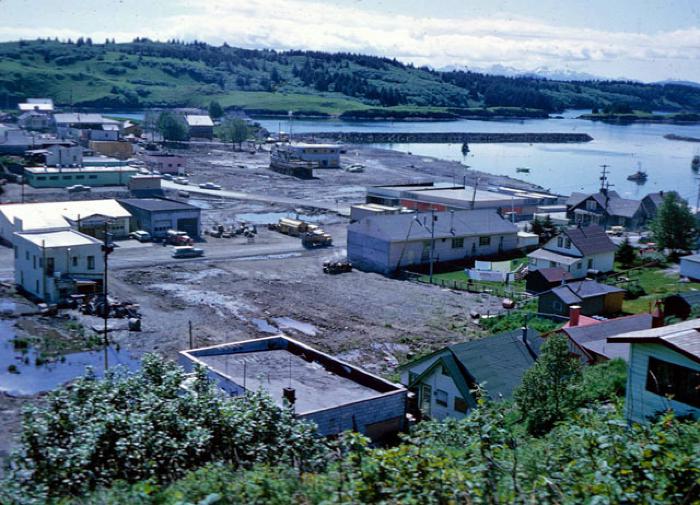Earthquake — Nuna Aulaluni (N), Nuna Arulaluni (S)

The Kodiak Archipelago lies at the juncture of two major tectonic plates, enormous pieces of the earth’s crust that are continually colliding. Here rock formed on the ocean floor is scraped off the Pacific plate as it slides beneath the more stationary North American Plate. As the Pacific plate adjusts to this pressure, sections occasionally slip, creating earthquakes.
Alutiiq legends provide several explanations for earthquakes. Some say that invisible men who lived inside the earth created quakes and made volcanoes steam and smoke when they fought, cooked meals, or heated a steam bath. Others suggest that earthquakes are caused by a powerful shaman grieving the loss of his son, and some believed that they were the result of a mythical being giving birth: the favorite animal of the Alutiiq supreme being Llam Sua.
Whatever their source, earthquakes have repeatedly shaped the lives of Alutiiq people. The Great Alaska Earthquake of 1964, one of the largest in recorded history, created a tsunami that leveled the communities of Kaguyak and Old Harbor, forced residents to vacate Afognak village, and generated dramatic changes in the distribution and availability of subsistence resources. Geologists believe that quakes of this size happen every four to five hundred years—more than fifteen times in the past 7,500 years of Kodiak’s human history.
